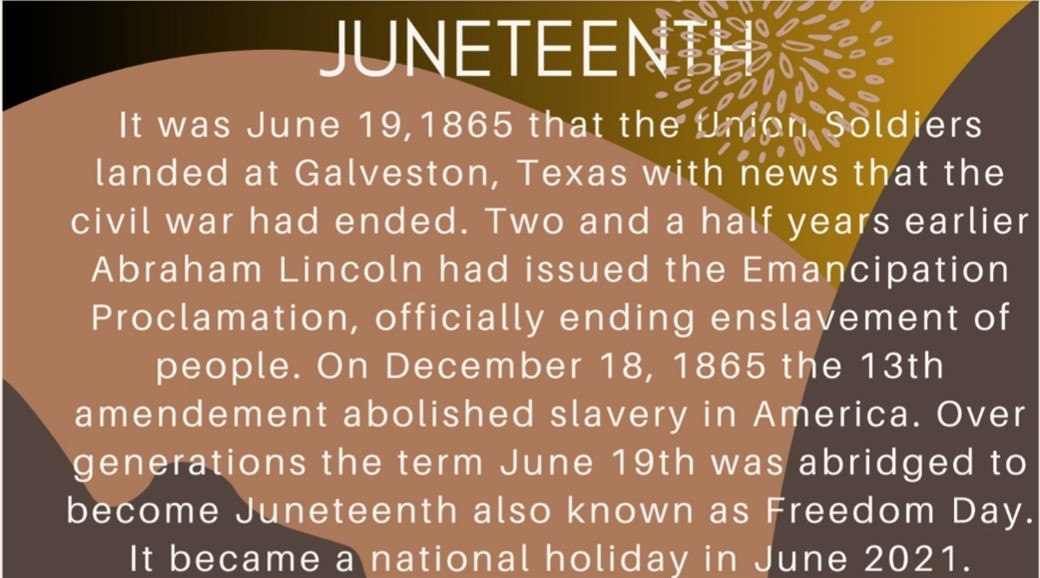Juneteenth became a National Holiday in June 2021. For years, this observance also known as Freedom Day was celebrated across African American communities and into others. Juneteenth is widely becoming an American observance and provides an opportunity to learn the full narrative. Enslaved people in Galveston Bay, Texas were informed of their freedom on June 19, 1865, however, enslavement continued in some U.S. border states. At the end of the year, the 13th Amendment abolished slavery in America. As we reflect on the past and embrace how far society has come, optimism and open perspective can guide mindsets. Social well-being and health equity are central to ongoing progress. The underserved and under resourced people are part of a humanity, deserving of social parity and access to care. The disparate conditions affecting them can be seen as remnants of practices such as redlining. Similarly, maternal health disparities largely impacting Black women have some origins in implicit bias. As clinical social workers and human service professionals, what is your call today for the cause and how can you activate it? Does the practice setting provide space for advocating, mediating, or bridging the gap as a trusted professional?
Resources:
CDC. (2023). Working together to reduce Black Maternal Mortality. https://www.cdc.gov/healthequity/features/maternal-mortality/index.html
PBS. (2022). Redlining: Mapping inequality. https://www.pbs.org/video/redlining-mapping-inequality-in-dayton-springfield-kam44p/
Sabin, J. (2022) Tackling implicit bias in healthcare. New England Journal of Medicine. https://www.nejm.org/doi/full/10.1056/NEJMp2201180
Smithsonian National Museum of African American History and Culture. (2023). Emancipation and educating the newly freed. https://nmaahc.si.edu/explore/stories/emancipation-and-educating-newly-

